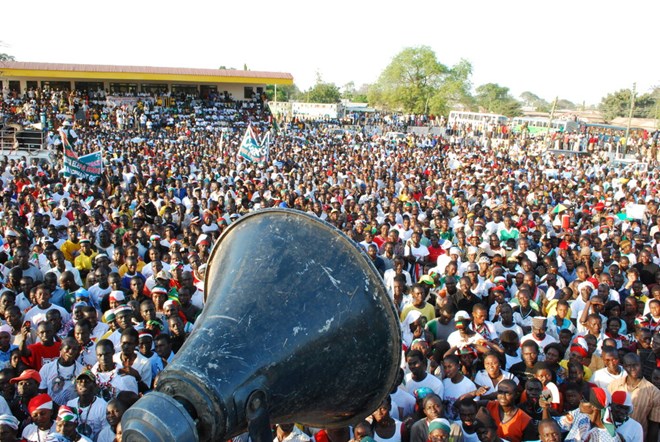East Africa Monitor
Wednesday February 7, 2018
In some ways, 2017 was a year to forget for African democracy. According to Freedom House, the decline of civil rights and democratic freedom continued across many African nations, contributing to what it’s calling democracy’s worst crisis in decades.
Only Syria ranked lower than South Sudan in Freedom House’s 2018 Freedom in the World report as the countries civil conflict continues to drag on. Ethiopia’s state of emergency was finally lifted in August, but only after some 21,000 people were arrested. Meanwhile, Burundi continued to isolate itself as President Pierre Nkurunziza gears up to run for a fourth term in power, amid ongoing reports of human rights violations in the country.
Then there were the elections. Rwanda’s Paul Kagame secured his third term as the country’s president, becoming the latest member of the third-termism club. And then there was the Kenyan election fiasco that brought the entire country’s democratic integrity into question.
It wasn’t all bad news, though. The surprise election of Mohamed Abdullahi Mohamed in Somalia’s February election brought new hope to the troubled country and “Farmajo’s” early impact has been positive. We also saw Africa’s first female president, Ellen Johnson-Sirleaf, show the continents “big men” how to step down after serving two terms after Liberia’s presidential poll.
Speaking of which, former Zimbabwe President Robert Mugabe stepped down after 37 years in power after the military seized power of the country.
Africa’s 2018 elections
Africa is due to hold nine elections in 2018, a number of which will be held in particularly difficult environments. Cameroon, the Democratic Republic of Congo (DRC), Egypt, Madagascar, Mali, Sierra Leone, South Sudan and Zimbabwe are all set to hold elections this year and – for better or worse – African democracy will be in the limelight once again.
Cameroon: Oct 2018
In the case of Cameroon, years of relative economic success has been met with recent challenges. Anti-government protests are on the rise and they’ve been met with violent crackdowns from security forces and internet blackouts. President Paul Biya, 84, is one of Africa’s longest-serving leaders, having been in power for 36 years, but public sentiment is turning and opposition parties are being urged to unite in an effort to push him out of office.
The DRC: Dec 2018
After repeated pushbacks, the DRC is finally set to hold presidential elections on December 23, 2018 – more than two years after President Joseph Kabila was supposed to step down from power. Support for Kabila is at an all-time low with the Catholic Church organising protests against the president’s failure to step down from power at the end of his second term in December 2016.
Various people have been killed and hundreds arrested in government responses to protests.
Egypt: Feb-May 2018
Egypt is yet to confirm the date for its next election and incumbent president Abdel Fattah el-Sisi is widely expected to win, even though he hasn’t confirmed his candidacy yet. Former prime minister Ahmed Shafiq and human rights lawyer Khaled Ali have both declared their intentions to run but this doesn’t guarantee they’ll make it to the polls, let alone put up a serious fight.
Madagascar: late 2018
Madagascar has the unfortunate title of being the world’s poorest country, based data available to The World Bank. However, it also holds on to the more positive record of never having had an armed conflict but political stability remains elusive. President Hery barely survived impeachment in 2015 and public support of the government continues to decline.
Mali: April-Nov 2018
Mali is due to stage regional, presidential and national elections in multiple stages, beginning in April and concluding in November this year. Elections were initially scheduled to be held in December 2017 but security concerns led to them being postponed. Mali’s ongoing security issues and President Ibrahim Boubacar Keita’s weakening position give opposition candidates extra motivation to disrupt the political climate.
Sierra Leone: March 7, 2018
Sierra Leone will take to the polls on March 7 this year, with more than a dozen parties pushing candidates for presidential, parliamentary, mayoral and municipal elections. President Ernest Bai Koroma will step down after a decade in power and the ruling All People’s Congress has appointed foreign affairs minister Samura Kamara to run in his place.
Opposition candidate Julius Maada Bio is expected to run, following his 2012 election defeat to Koroma.
South Sudan: July 2018
The world’s youngest nation is set to hold general elections in July, as it continues to grapple with a bitter civil war. President Salva Kiir wants to hold elections but the country’s economy is in no position to fund a serious election, let alone guarantee the necessary security to prevent further violence from rocking the already-vulnerable country.
Kiir’s main opponent, Riek Machar, is reportedly under house arrest while former army chief, Paul Malong, has been declared a rebel by the government and exiled. Meanwhile, the government continues to be accused of allowing civilian deaths and human rights abuses to take place in South Sudan’s internal conflict.
Zimbabwe: July-Aug 2018
With Robert Mugabe stepping down from power, president Emmerson Mnangagwa has vowed to hold “credible, free, fair and transparent” elections this year, in which he is expected to represent his ZANU-PF party. Whether Mnangagwa will be able to keep his promise in a country hungry for change and tired of economic instability remains to be seen.
A big year for African democracy
With eight African nations expected to take to the polls this year, democracy across the continent is under the spotlight. Events in the DRC and South Sudan will be particularly scrutinised and many will be paying attention to the new direction Zimbabwe steers itself after the long reign of Mugabe. Aside from hosting free and fair elections, the prospect of maintaining peace in a number of country’s already struggling with conflict will be a major challenge for Africa’s election-holding nations this year.
